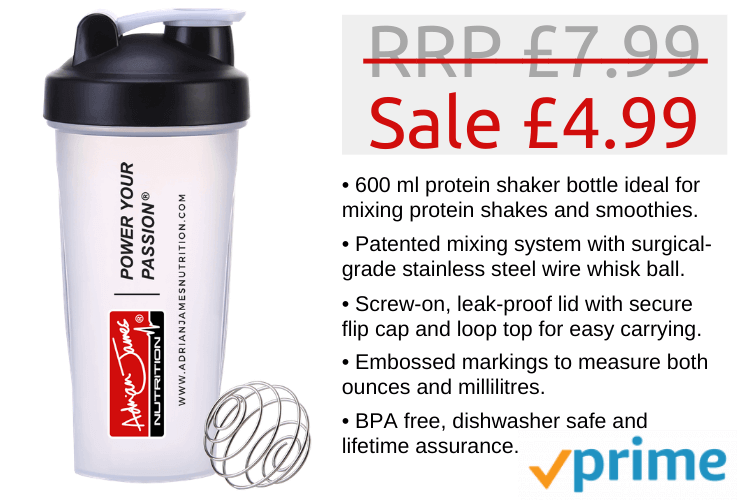Protein is the cornerstone of many an athlete’s diet. The nutrient, which comprises a chain of amino acids, is found in every cell of your body. Synonymous with muscle growth, protein enhances your body’s ability to synthesise hormones and repair damaged cells. When it comes to aiding post-workout recovery, no other supplement can compete; protein powder is the sports world’s go-to supp for good reason. Read on to discover how protein works and how you can harness its power to speed recovery and optimise your training.
How protein helps you recover faster
The effect that protein has on the body is quite remarkable. Protein can help you perform better in the gym, boost your endurance and improve immune function. Post-workout recovery starts with protein. This macronutrient aids in fat burning, tissue repair and lean muscle growth. Quite simply, your body needs protein to function at its peak.
Adequate protein intake is crucial to immune function, exercise recovery and maintenance of muscle mass. It plays a major role in post-exercise nutrition, feeding hungry muscles and preventing catabolism (muscle loss). For people who exercise regularly, increasing daily protein intake to around 2 grams per kilogram of bodyweight can accelerate muscle repair and enhance athletic performance.
How protein affects muscle repair
Muscular protein is depleted during exercise. Without adequate protein in your diet, the body begins to break down muscle to repair damaged tissues. This leads to catabolism. Drinking whey protein post-workout is a simple and effective way to fuel your muscles and speed up the recovery process. Ideally, you should aim to consume a fast-releasing protein within 40 minutes of finishing your workout. The quicker it enters your system, the quicker it can start facilitating muscle growth and repair.
Why protein should be shaken and taken
Protein shakes are a quick and convenient means of boosting your protein intake, but their benefits don’t end there. When ingested in liquid form, protein can be quickly digested and utilised for muscle repair. Compare this to the protein found in regular food, which may take hours to digest, delaying post-exercise recovery. Dietary fat can affect protein absorption too, whereas protein shakes contain little or no fat, making them ideal for post-workout recovery.
The best protein for post-workout recovery
Protein is found in a wide range of animal and vegetable-based foods and supplements. Pea, hemp, rice and beef are just some of the protein-rich sources used by supplement manufacturers. When it comes to aiding post-workout recovery, however, there is one protein that trumps them all: whey protein. That’s because whey contains all nine essential amino acids required for muscle growth and repair. After training, refuelling with a shake made with Healthy Whey, for example, will provide a blend of fast and slow-digesting proteins that waste no time in getting to work on tired muscles. Healthy Whey also contains BCAAs, glutamine, zinc, magnesium and vitamin B6 to further aid the recovery process.


To optimise your progress, make whey protein the first thing you reach for after completing a gruelling workout. For speeding recovery and building lean muscle, no other supp comes close.







